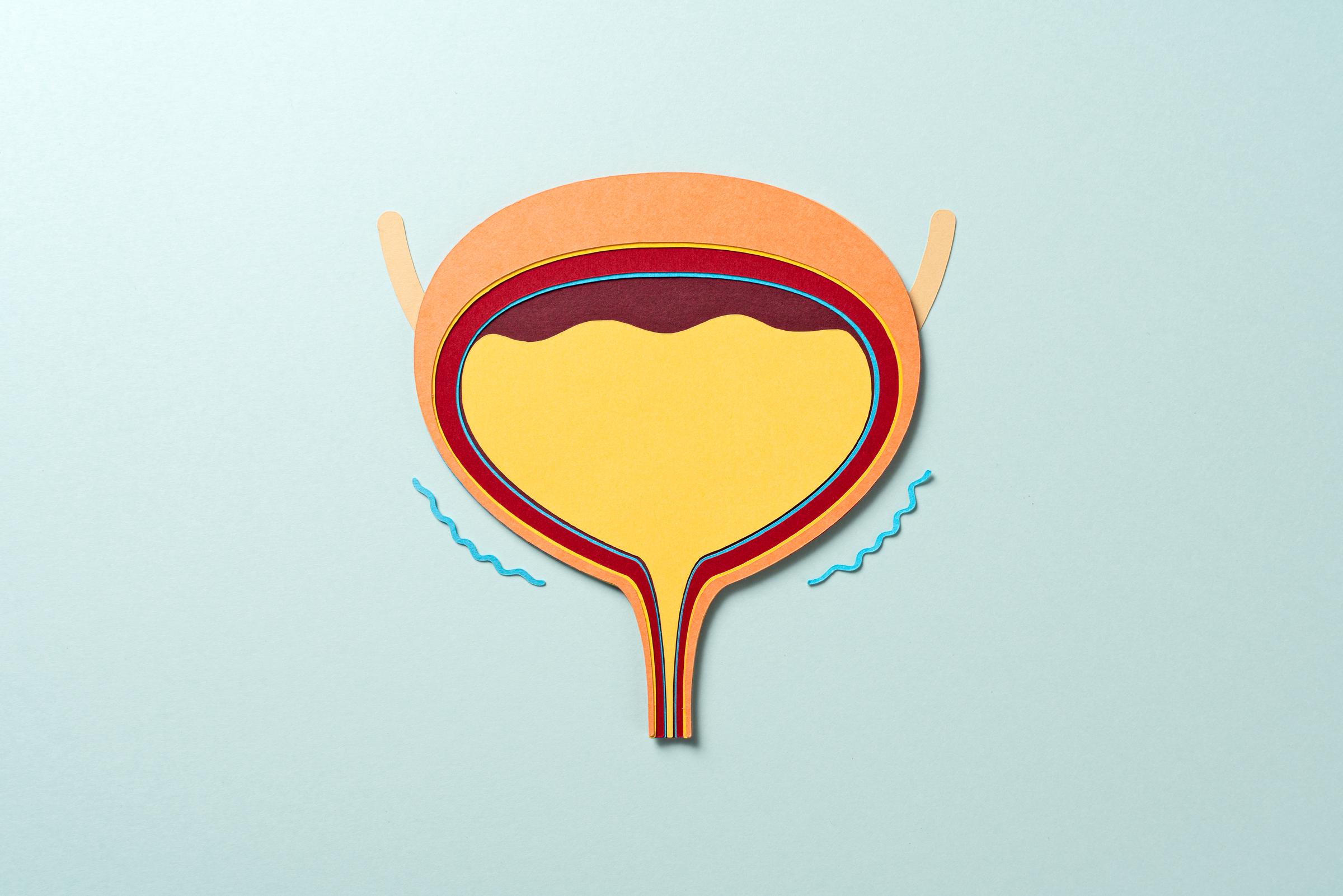
These Symptoms Should Never Be Ignored – When to See a Doctor Immediately, Even Though Many People Don't
You're up again at 2 a.m., not from stress, but from a dull ache behind your eyes. The indigestion you brushed off last week now lingers after every walk. And that nagging fatigue? These aren't just everyday nuisances — they could be urgent medical red flags.
Most of us know our bodies well enough to spot when something feels off. Yet, too often, instinct is overruled by inconvenience or denial. A new symptom shows up, and life goes on: work deadlines, errands, and family routines. But some signs shouldn't be sidelined, no matter how harmless they seem.

Man suffering from breathing problem | Source: Getty Images
Physicians warn that hesitation can be costly. Some of the most serious, even life-threatening, conditions don't scream. They whisper, showing up as ordinary discomforts that are anything but. Knowing what to watch for can mean catching a silent threat before it becomes irreversible.

Woman desperate for the toilet | Source: Getty Images
When the Bathroom Becomes a Constant Destination
For most people, needing to get up once during the night to use the bathroom isn't a cause for concern. If it's happening two or three times every night, it may signal something more serious.
This frequent urge to urinate, especially during the night, is one of the hallmark symptoms of diabetes. It occurs because excess glucose in the bloodstream pulls water from the body's tissues, forcing the kidneys to filter and eliminate it through urine.

Doctor uses 3D human model to explain urinary system issues — patient may be experiencing incontinence and signs of kidney dysfunction | Source: Getty Images
According to the Cleveland Clinic, this is known as polyuria and is one of the earliest signs of both type 1 and type 2 diabetes. While lifestyle factors such as drinking lots of fluids or taking certain medications can increase urination, context matters.
For instance, if you're drinking alcohol or caffeine before bed, you might expect more frequent trips. But if your habits haven't changed and you're still urinating more than usual — especially if it interrupts sleep — it's worth paying attention.

Man urgently holding his bladder, needing to urinate | Source: Getty Images
Dr. Estelle Williams, medical director for CityMD in southern New Jersey, emphasizes that when increased urination is paired with other symptoms like persistent thirst or a noticeable increase in appetite, it's time to see a doctor. "Those are the types of things I think need to be checked sooner rather than later," she said.

Papercraft model of a urine-filled human bladder | Source: Getty Images
Beyond diabetes, frequent urination can also stem from urinary tract infections, bladder issues, prostate conditions (in men), or even neurological disorders affecting bladder control. The Cleveland Clinic notes that people over 70, those who are pregnant, and those with an enlarged prostate are especially prone to this symptom.

Woman experiencing sudden urge to urinate in the bathroom | Source: Getty Images
In some cases, an overactive bladder or even pelvic organ prolapse could be at play. No matter the cause, the key takeaway is consistency. If your bathroom habits change suddenly or gradually over time and you can't explain why, it's worth discussing with your doctor. What may seem like a small inconvenience could be your body's way of waving a red flag.

Close-up of a hand flushing a toilet | Source: Getty Images
Pain That Interrupts Your Sleep
Pain is never pleasant, but when it wakes you up at night, it's especially concerning. "If you're waking up in the middle of the night with a headache, you've got a problem… because usually we don't wake up with headaches in the middle of the night," explained Dr. Lori Solomon, chair of the Department of Family and Community Medicine at New York Medical College.

Woman suffering from a stomachache | Source: Getty Images
Sleep-disrupting pain is different from the soreness or discomfort that might make it hard to fall asleep. This type of pain breaks through sleep cycles, often signaling deeper medical issues. Harvard's Ellen Slawsby, director of pain services at the Benson-Henry Institute for Mind Body Medicine, explained that nighttime is when many people report the worst flare-ups.

Woman laying in bed touching her painful neck | Source: Getty Images
One possible reason is hormone fluctuations. "[It] is when the production of the anti-inflammatory hormone cortisol is at its lowest," Slawsby shared. There's also growing evidence that chronic pain may follow a circadian rhythm, an internal body clock that influences not just sleep but also pain sensitivity.
That could help explain why some people consistently experience worsened symptoms at night, even without changes to their daily routine. This pattern is not only disruptive but potentially dangerous. Nighttime headaches, for example, may point to neurological issues, including elevated intracranial pressure or vascular conditions.

Woman laying in bed holding her head, seemingly in pain | Source: Getty Images
Chronic pain in any part of the body that interferes with sleep might signal inflammatory conditions like arthritis, fibromyalgia, or even undiagnosed injuries that worsen during rest due to a lack of movement and lower blood flow.
"Insomnia can lead to sleep deprivation, which increases the release of proteins called cytokines that are involved in the body’s inflammatory response," Slawsby noted. This, in turn, can make people even more sensitive to pain, setting off a vicious cycle where poor sleep and worsening symptoms feed into each other.

Man lying awake in bed at night, feeling unwell and unable to sleep | Source: Getty Images
If pain is interfering with your sleep, whether it's in your head, chest, back, or joints, it's time to stop writing it off. Disrupted sleep isn't just a symptom; it can also make other health problems harder to manage. The body does its best healing during rest, so if rest isn't happening, something's worth investigating.

Adult woman experiencing back pain after waking up in bed in the morning | Source: Getty Images
Sudden, Severe Headaches Deserve Urgent Attention
Most people experience headaches at some point, and many are harmless. But when one strikes out of nowhere and feels unlike anything you've had before, it may signal a medical emergency. Dr. Solomon explained that while headaches are "super common," some patterns should never be ignored, especially those that are sudden and intense.

Symbolic image representing migraines and headaches: man holding his aching head in discomfort | Source: Getty Images
This type of headache has a name: a thunderclap headache. It's exactly what it sounds like — an excruciating pain that reaches maximum intensity within 60 seconds. People often describe it as the worst headache of their lives.
According to the Cleveland Clinic, thunderclap headaches can indicate serious conditions such as a subarachnoid hemorrhage (bleeding around the brain), a brain aneurysm, stroke, or a sudden spike in blood pressure.

Woman experiencing a headache, rubbing her temples in discomfort | Source: Getty Images
Because there's no way to tell the cause without testing, anyone experiencing one should go to the emergency room immediately. Thunderclap headaches don't always come with other symptoms.
However, when they do, these may include nausea, vomiting, confusion, vision changes, speech problems, seizures, or even numbness and weakness in parts of the body.

Man experiencing a headache, holding his head in discomfort | Source: Getty Images
Dr. Williams cautioned against self-diagnosing these headaches as migraines, which are often misunderstood. "A migraine is actually a very specific diagnosis and headache pattern, requiring neurologic evaluation," she explained.
It's also important to distinguish thunderclap headaches from ice pick headaches, which are sharp, stabbing pains that last only seconds and often come in clusters. Thunderclap headaches, by contrast, sustain their intensity for at least five minutes and then gradually ease over hours.

Multiple exposure image of a young woman with a headache, holding her head in her hands and eyes closed | Source: Getty Images
Some thunderclap headaches are ultimately deemed "primary," meaning no underlying medical cause is found. But secondary thunderclap headaches, caused by bleeding, vascular issues, or trauma, are far more dangerous.
If you've ever had a headache so painful it stopped you in your tracks, or woke you from sleep, you shouldn't try to wait it out. These types of headaches don't just disrupt life in the moment. When left unchecked, they can become life-threatening in minutes.

Woman suffering from a headache while working in an office | Source: Getty Images
Shortness of Breath and Fatigue That Feels Off
Breathlessness after climbing stairs or working out too hard isn't unusual. But when you suddenly find yourself winded during routine tasks like folding laundry or walking across a room, it's a warning sign that should not be ignored.
Shortness of breath, also called dyspnea, can be a subtle indicator of several underlying issues, most often involving the heart or lungs. According to Harvard Health, standard tests like chest x-rays, echocardiograms, or lung function exams often reveal the cause.

Woman clutching her chest, experiencing pain and difficulty breathing | Source: Getty Images
But when they don't, cardiopulmonary exercise testing (CPET) may be used to evaluate how well your heart and lungs perform together. While it might be easy to blame shortness of breath on being out of shape or just tired, doctors say it's important to pay attention.
This is especially if it comes on suddenly or is accompanied by pain in the chest or back. Dr. Williams emphasized that this combination can be a soft telling sign of a pulmonary embolism, a blood clot in the lungs that requires immediate treatment.

Woman clutches her chest in pain | Source: Getty Images
Fatigue is another symptom that can creep in slowly and be easily dismissed. Many people feel tired due to demanding schedules, poor sleep, or stress, but persistent, unrelenting fatigue that interferes with your ability to function day-to-day is a different matter.

Exhausted woman leaning forward with hands on her knees, appearing fatigued | Source: Getty Images
Fatigue can also be a sign of heart disease, sleep apnea, or even cancer. When exhaustion prevents you from doing things you once managed easily, like walking the dog, exercising, or grocery shopping, it's time to consider what your body might be telling you.
Breathlessness and fatigue may not seem like emergencies at first. But both can be signs of serious conditions that worsen quickly if left untreated. If you notice either symptom developing without an obvious explanation, and especially if it persists, it's critical to check in with your doctor.

Woman lying on a couch with her hand on her forehead and eyes closed, indicating exhaustion or stress | Source: Getty Images
That Indigestion Might Not Be What You Think
Indigestion is one of the most common discomforts people experience, often blamed on heavy meals, stress, or eating too quickly. But experts warn that when this familiar symptom appears in unfamiliar ways, it could be something much more serious.
Indigestion can sometimes be a sign of heart trouble, especially if it strikes during physical activity. "If you're taking a walk and all of a sudden you feel like, 'Oh, I've got some indigestion,' and then it gets better when you stop walking, that's your heart," cautioned Dr. Solomon.

Man with indigestion | Source: Getty Images
That type of discomfort, often described as pressure, tightness, or a burning sensation in the chest, might not feel severe. But it's exactly the kind of symptom that many patients delay addressing. Indigestion-like symptoms that last 15 to 20 minutes should raise concern, particularly for people who don't normally suffer from indigestion or heartburn.
According to the Cleveland Clinic, common indigestion, also known as dyspepsia, usually occurs after eating and involves symptoms like upper abdominal pain, bloating, nausea, and early fullness. It can be caused by acid reflux, peptic ulcers, or even stress. But when it appears outside of mealtime or during exertion, it may have nothing to do with the digestive system at all.

Young man touching his chest, appearing to be in discomfort or pain | Source: Getty Images
Dr. Solomon also warned that a combination of fatigue and indigestion, especially if not related to food, can indicate reduced blood flow to the heart. In such cases, what feels like an upset stomach is actually the body struggling to deliver oxygen to the heart muscle, a condition that can precede a heart attack.
While indigestion is rarely urgent on its own, unusual patterns, especially when paired with other symptoms like shortness of breath or pain radiating to the back or jaw, should prompt a visit to your doctor. If you're unsure, don't wait for the symptom to pass. Listen to your body. A mistaken assumption could cost valuable time.

Young man touching his chest, appearing to be in discomfort or pain | Source: Getty Images
Blood in Stool or Urine: Don't Delay
Spotting blood where it doesn't belong, especially in the toilet, is unsettling. But instead of calling a doctor, many people explain it away as hemorrhoids or something they ate. That's a mistake, experts say. Blood in your stool or urine is never normal, and even if it's not always serious, it deserves prompt evaluation.
The appearance of the blood can offer clues. Bright red blood often suggests bleeding from the lower gastrointestinal tract, like the rectum or anus, while dark, tarry stools may indicate bleeding higher up, such as in the stomach or small intestine.

A lab technician opens a sample of bloodied stool taken from a patient | Source: Getty Images
According to Harvard Health, common causes of rectal bleeding include hemorrhoids, anal fissures, and diverticulosis, but they can also signal more serious problems like colon polyps or colorectal cancer. Blood in the stool is a common presentation of colon cancer, and it's one that's often misattributed to something less dangerous.
Likewise, blood in the urine is a red flag. While urinary tract infections or kidney stones often cause it, it can also signal more serious conditions, such as bladder cancer. Even small amounts of blood warrant a medical evaluation, especially if they recur.

Blood in human urine in sample pot | Source: Getty Images
Other contributing factors, such as prostate problems in men or pelvic conditions in women, could be at play. Certain foods, supplements, and medications can mimic blood, beets, black licorice, and iron pills. But if you're unsure whether what you're seeing is normal, doctors agree: don't guess.
Monitoring your bowel and urinary habits can feel awkward, but it's a critical part of staying healthy. Early detection is key when it comes to gastrointestinal and urinary cancers, and most are more treatable when caught in early stages. Don't wait for the symptom to get worse. Get it checked while there's still time to act.

Sterile urine sample and blood test vials in a clinical setting | Source: Getty Images
When Symptoms Linger Too Long
Not every health concern starts with a dramatic event. Some symptoms arrive quietly and never really leave. A lingering cough, ongoing fatigue, or unexplained weight loss may not seem urgent, but when these issues persist for weeks or months, they should not be ignored.
Even something as common as a cough could signal more serious issues if it lasts too long. "There's [sic] lots of reasons you can have a cough, but generally, if you have a cough after a cold, it goes away in a few weeks. So if it lasts longer than a month, we generally want to know about that," shared Dr. Solomon.

Young woman lies on a couch, holding a pillow against her abdomen, appearing to experience pain | Source: Getty Images
Dr. Williams echoed that view, adding that persistent, low-grade symptoms can sometimes be early signs of serious illness. One red flag: unintentional weight loss. If you're not trying to lose weight but notice a drop on the scale or your clothes start to fit differently, your doctor should be informed.
This group of persistent, unexplained symptoms has a name: Persistent Physical Symptoms (PPS). According to The Lancet, PPS are physical complaints that last several months or longer and don’t always have a clear medical explanation. They can occur in the context of functional disorders, mental health conditions, or early-stage chronic diseases.

Young woman struggling with insomnia, lying in bed with her hand on her forehead | Source: Getty Images
The challenge, doctors say, is that PPS often fall into a gray area. They're uncomfortable but not always immediately diagnosable. Still, dismissing these symptoms or accepting them as just stress can delay necessary care.
Dr. Solomon encouraged patients to trust their instincts. "Sometimes people feel silly about coming in with all these different symptoms," she said. "I'd rather say it's nothing and reassure them than miss something that could be really serious if we didn't catch it in time."

Tired woman sitting in bed, holding her neck in pain, symbolizing stress, burnout, and mental health struggles | Source: Getty Images
Persistent symptoms don't always signal disease, but they do signal the need to pause and pay attention. When your body keeps telling you something, even quietly, it's always worth listening.
No one wants to be alarmist, but waiting too long can mean missing the chance to act early. Trusting your body and permitting yourself to take symptoms seriously is not overreacting. It's preventive care at its most powerful.
The information in this article is not intended or implied to be a substitute for professional medical advice, diagnosis or treatment. All content, including text, and images contained on news.AmoMama.com, or available through news.AmoMama.com is for general information purposes only. news.AmoMama.com does not take responsibility for any action taken as a result of reading this article. Before undertaking any course of treatment please consult with your healthcare provider.
